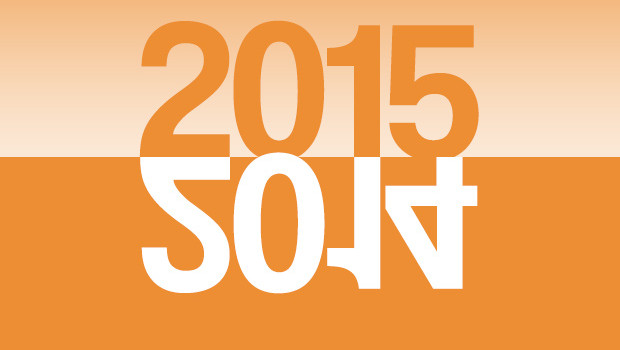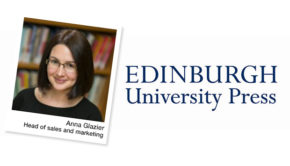Trendspotting—ten things we learned in 2014
What are the big lessons of the last 12 months in digital publishing, and what can we expect in 2015? Here are Firsty’s end-of-year reflections
1 eBook sales growth is slowing… for now
There has been much talk of a plateau in eBook sales in 2014—of the phenomenal growth of the last few years easing slightly. Figures from publishers and other sources bear this out, and some argue that all those who were likely to migrate from print to eBooks might now have done so.
It can be easy to overplay this trend. eBook sales have still grown substantially this year, and by the time Nielsen BookScan’s final figures are in, the print market will almost certainly have declined again. But this year has been a reminder that eBook sales are simply an alternative to print ones, not a complete replacement. Or as Anthony Forbes Watson put it in the Bookseller: “I think it has been a year in which everyone has realised that it is premature, if not downright ludicrous, to talk about the demise of the physical book.” It will be fascinating to see whether this trend continues into next year, or whether 2014 proves simply a blip in the rise of the eBook. The rise of browser-based reading is one reason to think that the digital transition has a long way to go yet.
2 Reading is mobilizing
This year brought the tipping point in readers’ shift from dedicated eBook devices to multi-use tablets and smartphones. The Bookseller’s annual Digital Census suggested that more people in the industry are now reading on iPads than on Kindles—the first time in the six years of the survey that this has been the case. What this means for publishers in 2015 is crystal clear: get websites fully optimized for mobile devices, or miss out in sales.
3 It’s time to go D2C
Publishers’ shift towards selling direct to consumers has been gradual but definite. In this, independents have so far been more nimble than multinational ones, because many of them operate in niches where it is possible to target likely customers with precision. As many of them have found, D2C offers good returns on sales, great marketing opportunities and the ability to engage readers. It won’t replace sales through retail channels, but it should be an increasingly welcome addition for publishers in 2015.
4 Subscriptions aren’t taking off… yet
Subscriptions have been an important channel in academic publishing for a long time (and indeed, the launch of the recent eBookstore for Macmillan Education and the CXC represents a recent Firsty Group entry in this field), but with Amazon’s UK launch in September of Kindle Unlimited, they broke into the trade mainstream too. Offering some 700,000 ebooks for a flat fee each month, it is undoubtedly a great deal for heavy readers—but perhaps not such a good one for publishers. Many have yet to sign up, and success in the academic sector doesn’t mean it will necessarily work for trade publishers. Authors seem pretty disgruntled so far too. Whether Amazon’s involvement can help subscriptions to catch hold here will be one of the most interesting questions of 2015.
5 ‘Backlist’ is dead
Perhaps the most significant impact of the arrival of eBooks is the way it makes content available forever. Coupled with print on demand technology, it means that books need never fall out of print again. This has huge benefits for publishers, who no longer have to rely on new releases for the bulk of their sales but can find ways to generate constant interest in books across their catalogues. In terms of discoverability, the boundaries between frontlist and backlist are disappearing fast.
6 It’s a numbers game
Not many publishers would have known what big data meant at the start of the year, let alone known how to use it. But as we noted in a recent commentary, it has become a buzzword of 2014, and something that publishers with the resources to cope with it are taking an increasing interest in. Whether all the data they have at their disposal will make them better companies remains to be seen; it probably won’t help them predict the next big publishing trends, for example. But it is incontrovertible that publishers who start to get a grip on their data will be at a competitive advantage – and one of the best ways of doing this is to start dealing directly with their audiences.
7 Terms are a sticking point
This year’s rumbling row between Hachette and Amazon showed how far apart publishers and retailers remain on terms for eBooks. Disputes like these are as old as the industry itself, but they have rarely been played out as publicly as this. It showed the power of Amazon now, but also revealed that publishers are not afraid to push back on prices—though in the end, the furore did no-one any good, least of all Hachette’s authors. Terms negotiations in 2015 will be no less tricky, though it would be a surprise if they were so widely broadcast.
8 Marketing matters
Publishers have always known that good marketing is crucial in helping print books stand out from the crowd, but it has sometimes been underestimated in eBooks. Discoverability of content is much easier on the internet than in bookshops, but with so much competition out there now, it is not enough to sit and wait for customers to find ebooks. Sharpening up digital marketing will be one of the big challenges of next year.
9 Publishers need to be video stars
Video content has been a part of the marketing mix for a while now, but this was the year it became a must-have. Across YouTube, social media and publishers’ own websites, visual content can spark big interest in print or eBooks and go viral in minutes. YouTube has even spawned a couple of bestsellers in Alfie Deyes and Zoella, and there is undoubtedly more vloglit to come in 2015.
10 The future’s bright
There has been so much talk about change in publishing over the last few years, and it is often accompanied by handwringing about the future of the industry. Are publishers doing enough to transition from print to digital? Will self-publishing take over? And will people even still want to buy books? These are all valid questions, but perhaps we should be a bit more optimistic. Publishing has coped with the digital transition much better than most other industries, and so far their innovation has kept consumers interested in what they have to offer. As Bloomsbury’s Nigel Newton said in the Bookseller’s round-up of the year: “People are still reading in spite of the ferocity of proliferation of competing forms of entertainment.” Long may that continue.





